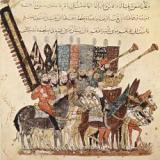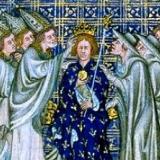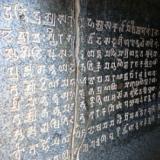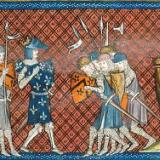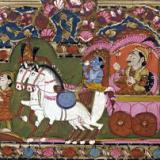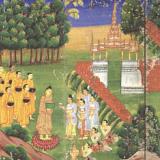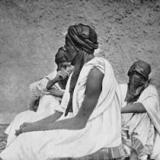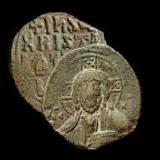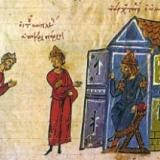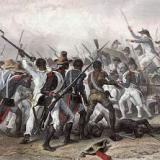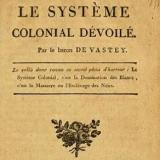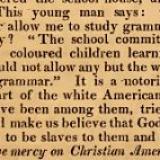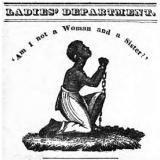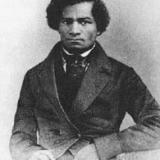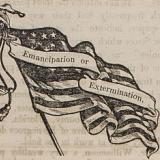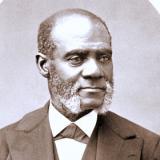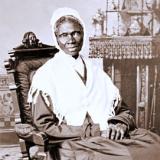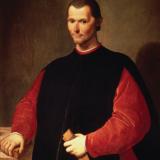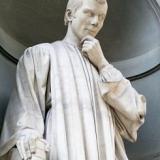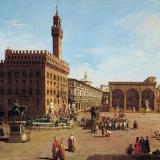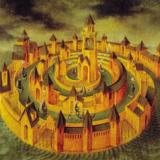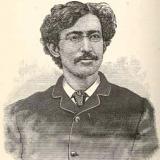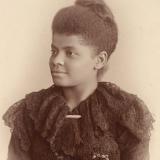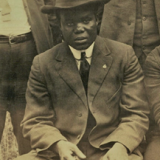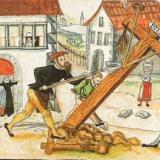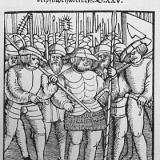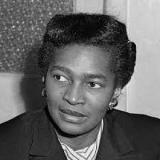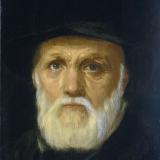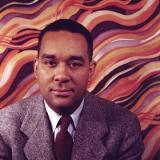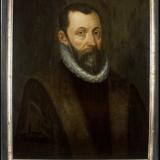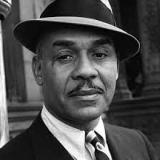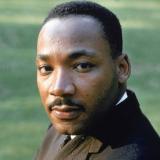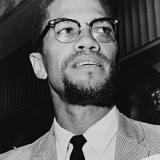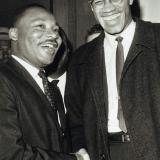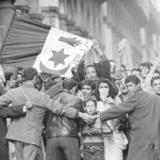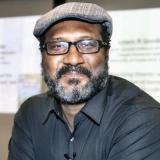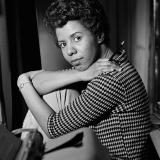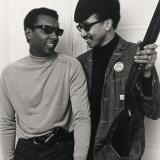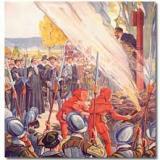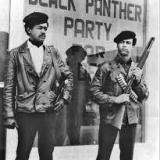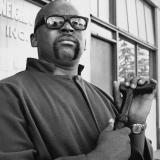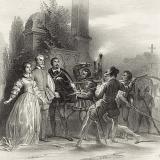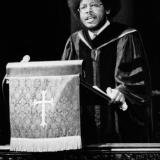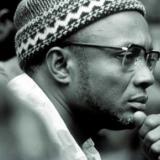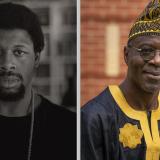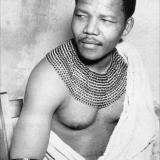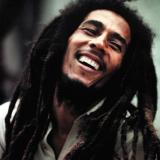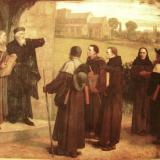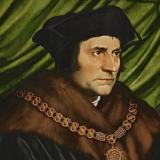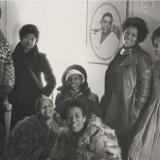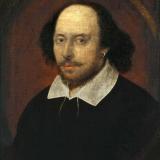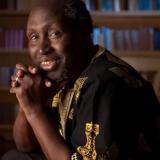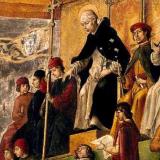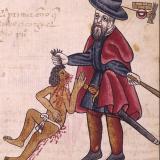War and Violence
Posted on
In his City of God Augustine traces the histories and philosophical underpinnings of two “cities,” one devoted to worldly glory, the other to heavenly bliss.
Posted on
The historian Ibn Khaldūn applies the methods of philosophy to understand the rise and fall of political regimes.
Posted on
The “Investiture Contest” between church and state and the first major work of medieval political philosophy, John of Salisbury’s Policraticus.
Posted on
Two figures from the Mauryan dynasty, Kauṭilya and the king Aśoka, set out contrasting ideas about the ideal political rule.
Posted on
Aquinas follows medieval legal thinkers in defining the conditions under which war may be justified, and proposes his famous doctrine of double effect.
Posted on
The Bhagavad-Gītā or “Song of the Lord” from the Mahābhārata ties its theory of detached action to an innovative conception of the divine.
Posted on
Vegetarianism and non-violence (ahimsa) in ancient Jainism, Buddhism, and Hinduism.
Posted on
Uthman Dan Fodio and his family were scholars, poets, and warriors whose jihad in 19th century Nigeria created the Sokoto Caliphate.
Posted on
Legal and economic thought in Byzantium: the sources of the law’s authority, the relation of church and civil law, just price, and just war.
Posted on
Intellectual exchange between Christians and Muslims, and the later flowering of Syriac literature including the philosopher Bar Hebraeus.
Posted on
In an age of revolutions and revolutionary ideas, the Haitian Revolution of 1791-1804 stands out as the most radical of them all.
Posted on
The Baron de Vastey unveils the horror of colonialism as a system and defends the monarchy of King Christophe in the tense early years of Haiti’s independence.
Note: this episode repeats some of Vastey's vivid descriptions of violence against slaves, so please think twice before listening to it around kids for example.
Posted on
An interview with Doris Garraway on the background, intellectual basis, and legacy of the Haitian Revolution.
Posted on
David Walker defends violent resistance in his incendiary and influential Appeal.
Posted on
Maria W. Stewart’s public addresses bring the concerns of African American women into the struggle against racial prejudice.
Posted on
Frederick Douglass' journey from slave to leading figure of 19th century American thought.
Posted on
In two speeches marking holidays, Frederick Douglass champions the idea of world citizenship, the power of appeals to conscience to bring change, and the role of violence.
Posted on
Henry Highland Garnet encourages, or actually demands, that enslaved Americans throw off their chains and debates Douglass over how best to resist slavery.
Posted on
The moral crusades of Sojourner Truth and Frances Harper, activists against racial and gender oppression.
Posted on
Machiavelli’s seminal work of political advice, The Prince, tells the ruler how to be strong like a lion and cunning like a fox.
Posted on
Peter celebrates reaching 350 episodes by explaining a single sentence in Machiavelli's "Discourses."
Posted on
Bruni, Poggio, Machiavelli, and Guicciardini explore political ideas and historical method in works on Roman and Italian history.
Posted on
Tommaso Campanella’s The City of the Sun and other utopian works of the Italian Renaissance describe perfect cities as an ideal for real life politics.
Posted on
T. Thomas Fortune uses newspaper editorials to put forth a theory of civil rights and sets out a plan of political action for protecting them.
Posted on
Ida B. Wells, her tireless crusade against lynching, and her analysis of the underlying purpose of racial violence
Posted on
Co-host Chike joins Peter to look back at series two and ahead to series three.
Posted on
Around the time of World War One, Hubert Harrison (pictured), A. Philip Randolph, and other black socialists argue that racial oppression is caused by capitalism.
Posted on
How humanism and scholasticism came together with the Protestant Reformation to create the philosophy of 15 - 16th century Europe.
Posted on
The “learned piety” of Desiderius Erasmus, the greatest figure of northern humanism.
Posted on
Faced with massive political upheaval and the rise of the Anabaptists, Luther argues for a socially conservative version of the Reformation.
Posted on
Claudia Jones argues that Communism provides the remedy for racism and imperialism.
Posted on
Amidst religious conflict in the Netherlands, Dirck Coornhert pleads for religious toleration and freedom of expression.
Posted on
Famous for his incendiary novel Native Son, Richard Wright responds in his multifaceted writings to sociology, communism, colonialism, and existentialism.
Posted on
Justus Lipsius draws on Seneca and other Stoics to counsel peace of mind in the face of political chaos, but also writes a work on how such chaos can be avoided.
Posted on
Ralph Ellison provides a new metaphor for the experience of racism in his Invisible Man and tackles topics of art and identity in his essays.
Posted on
The story of Martin Luther King Jr. up to 1963, focusing on the development of his philosophy of nonviolence.
Posted on
The life and career of Malcolm X up to 1963, with a focus on his separatist black nationalism and his critique of non-violent protest.
Posted on
After 1963, the views of Malcolm X and MLK came closer together, on topics including internationalism, political engagement, and economics.
Posted on
Fanon’s incendiary final work explores the violent process of decolonization.
Posted on
We're joined by a leading Fanon expert to talk about a range of themes in his work: Negritude, psychiatry, and violence.
Posted on
The author of the famous play, A Raisin in the Sun, explores questions of violence, sexuality, and more during her too brief life.
Posted on
How the controversial slogan “black power,” used by activists like H. Rap Brown and Stokely Carmichael (pictured), relates to ideas of militancy, separatism, and the power of language.
Posted on
Even as wars of religion in France prompt calls for toleration, hardly anyone makes a principled case for freedom of conscience… apart from Sebastian Castellio.
Posted on
The philosophical underpinnings of a “vanguard of revolution” led by Huey P. Newton, Bobby Seale, and Eldridge Cleaver: the Black Panther Party.
Posted on
An interview on the nature of religious tolerance, and the forms it took during the Reformation and in the thought of early modern thinkers like Locke and Leibniz.
Maria Rosa Antognazza is Professor of Philosophy at King's College London.
Posted on
The Pan-Africanist philosopher Maulana Karenga defends the importance of cultural revolution and invents the holiday Kwanzaa.
Posted on
Protestant French thinkers like François Hotman and Theodore Beza propose a radical political philosophy: the king rules at the pleasure of his subjects.
Posted on
After Albert Cleage and James Cone propose a liberatory interpretation of Christianity, William R. Jones wonders whether God is a white racist. We also follow Black Theology among “Womanist” authors and in South Africa.
Posted on
Amílcar Cabral, leader of a revolution against colonialism in Guinea-Bissau and Cape Verde, rethinks culture and Marxist theory as bases for his struggle.
Posted on
Two scholars of the same name join us to shed further light on freedom fighter and political theorist Amílcar Cabral.
Posted on
The career and ideas of Nelson Mandela up to the time of his imprisonment, in the context of the founding of the African National Congress.
Posted on
How the Rastafari movement grew from trends within Africana philosophy, and then passed into global popular culture in the music of Bob Marley and other reggae artists.
Posted on
John Knox polemicizes against idolaters and female rulers, while the humanist George Buchanan argues more calmly for equally radical political conclusions.
Posted on
What is the message of the famous, but elusive, work Utopia, and how can it be squared with the life of its author?
Posted on
Toni Morrison, Alice Walker, and Maya Angelou explore the themes of black feminism (or “womanism”) in their fiction.
Warning: this episode contains discussion of sexual violence and suicide.
Posted on
How should we approach Shakespeare’s plays as philosophical texts? We take as examples skepticism and politics in Othello, King Lear, and Julius Caesar.
Posted on
How one of Kenya's greatest writers came to argue that African literature should be written in African languages.
Posted on
How religious persecution and censorship shaped the context of philosophy in Catholic Europe in the sixteenth century.
Posted on
Bartholomé De las Casas argues against opponents, like Sepúlveda, who believed that Europeans had a legal and moral right to rule over and exploit the indigenous peoples of the Americas.
Posted on
In this interview we learn about the main issues in modern-day philosophy of disability, and the relevance of this topic for the European encounter with the Americas.


